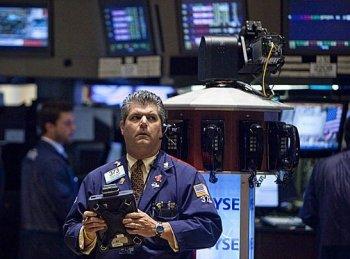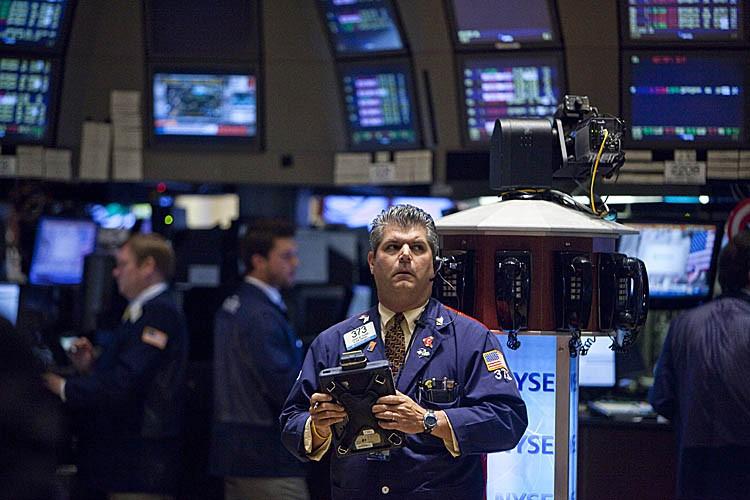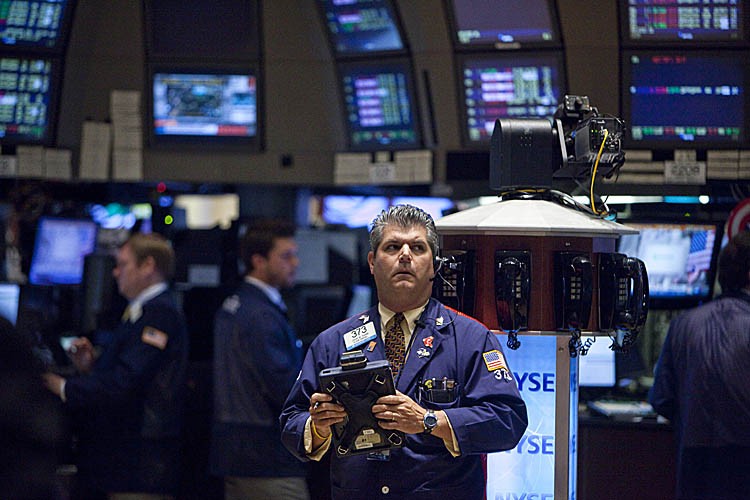Stocks Tumble on Debt Fears
U.S. stocks tumbled on Monday, dropping the most in a month, as investors digested a slew of negative economic news, from last week’s disappointing jobs report, to worries over the eurozone and U.S. debt talks in Congress.

DEBT FEARS: A trader speaks on the phone while working on the floor of the New York Stock Exchange before the closing bell, July 11. Ramin Talaie/Getty Images
|Updated:





